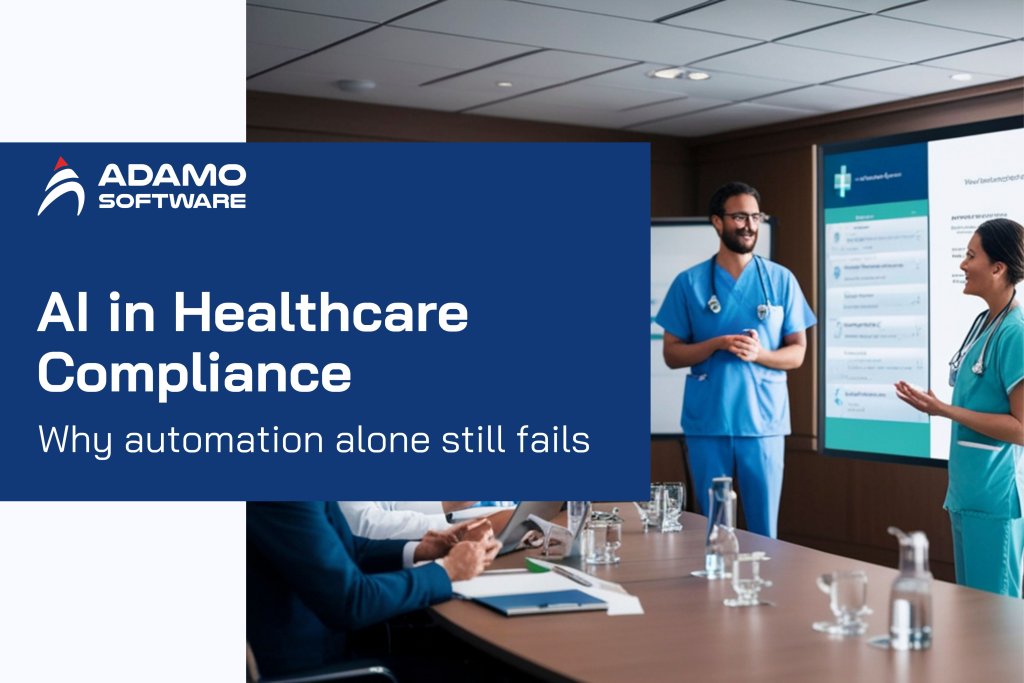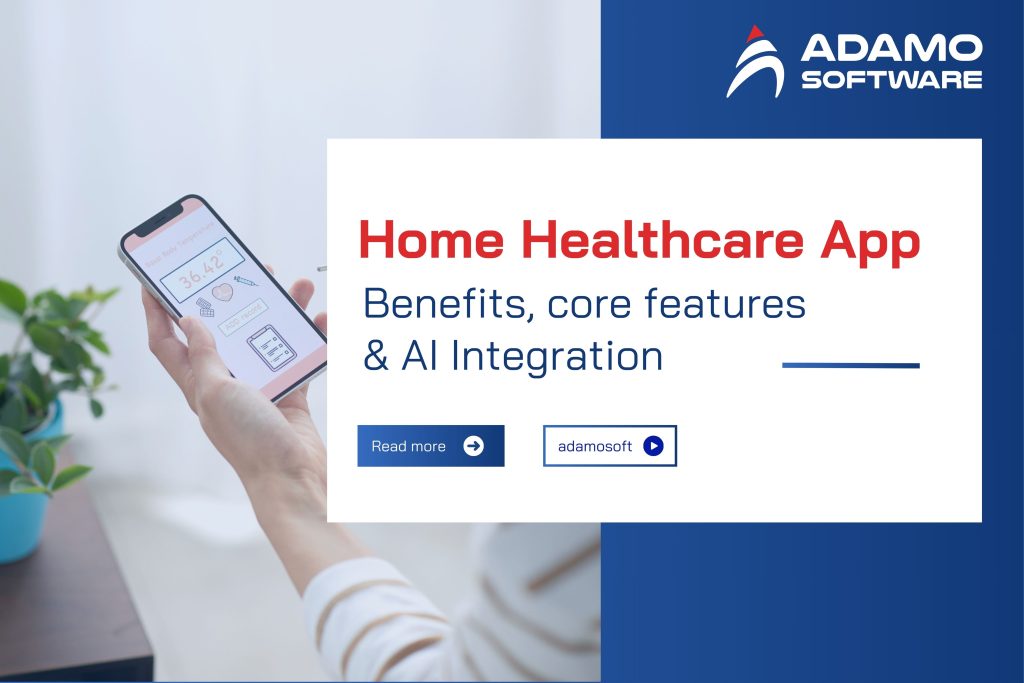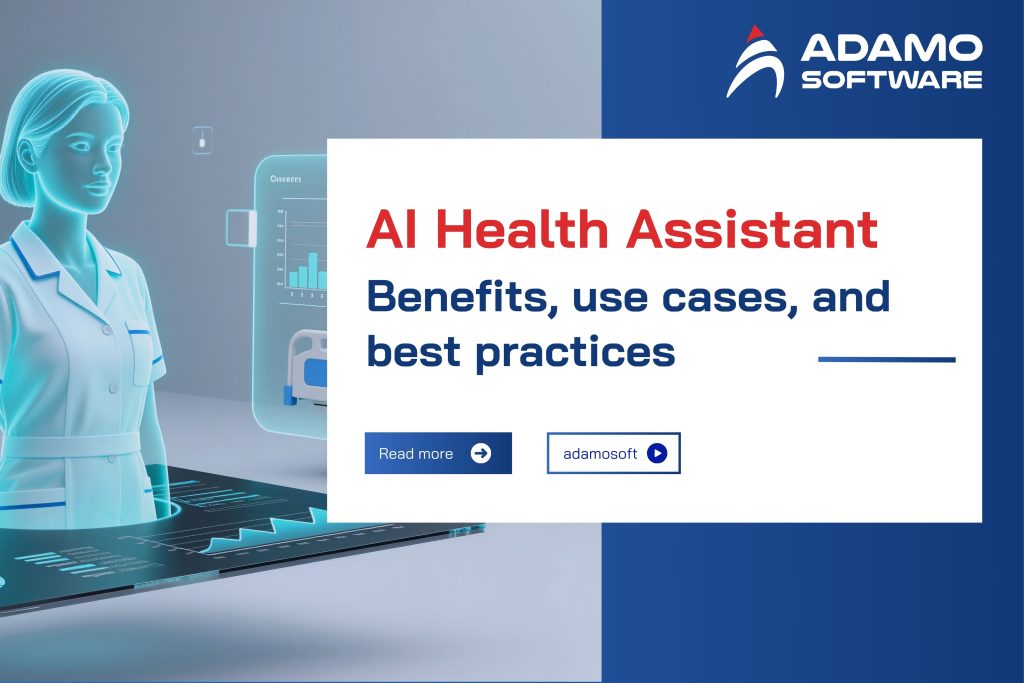Healthcare ERP solutions: Costs breakdown and development guide
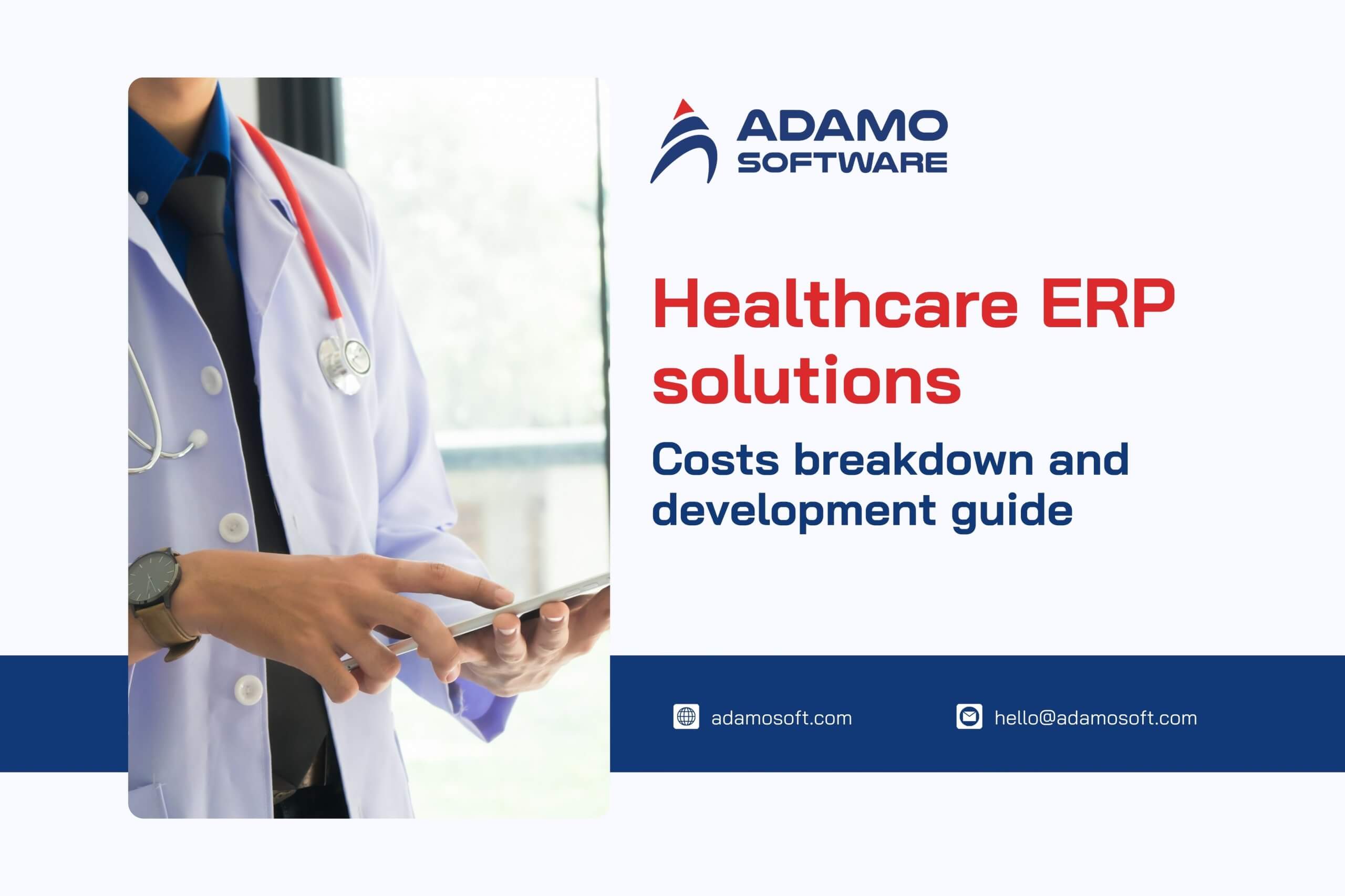
Looking to streamline hospital operations and reduce costs? Discover the full guide to healthcare ERP solutions, from key features to development costs to implement a comprehensive healthcare ERP solution.
Healthcare is a dynamic industry. Organizing everything in a streamlined manner and ensuring everything is in order can be complex. For example, registering patients, admitting patients, and processing their bills until they are discharged is time-consuming and requires proper planning.
However, healthcare ERP solutions can help streamline the entire process, improve data flow, and enhance decision-making. This ERP system helps healthcare teams work more efficiently, so patients get the care they need more quickly and without delays.
While implementing an ERP system is a significant investment and can be expensive, the long-term benefits often outweigh the initial costs, and healthcare ERP solutions implementation process. Helping small and medium businesses plan their finances and avoid unwanted surprises.
I. Must-have features of healthcare ERP solutions
Running healthcare operations isn’t easy — from juggling patient care and staying compliant to keeping finances in check, the challenges are constant. To address these challenges, your healthcare ERP system must provide key features to centralize patient data, optimize clinical workflows, and ensure compliance. Here are the top 6 key features of an ERP solution for your business.
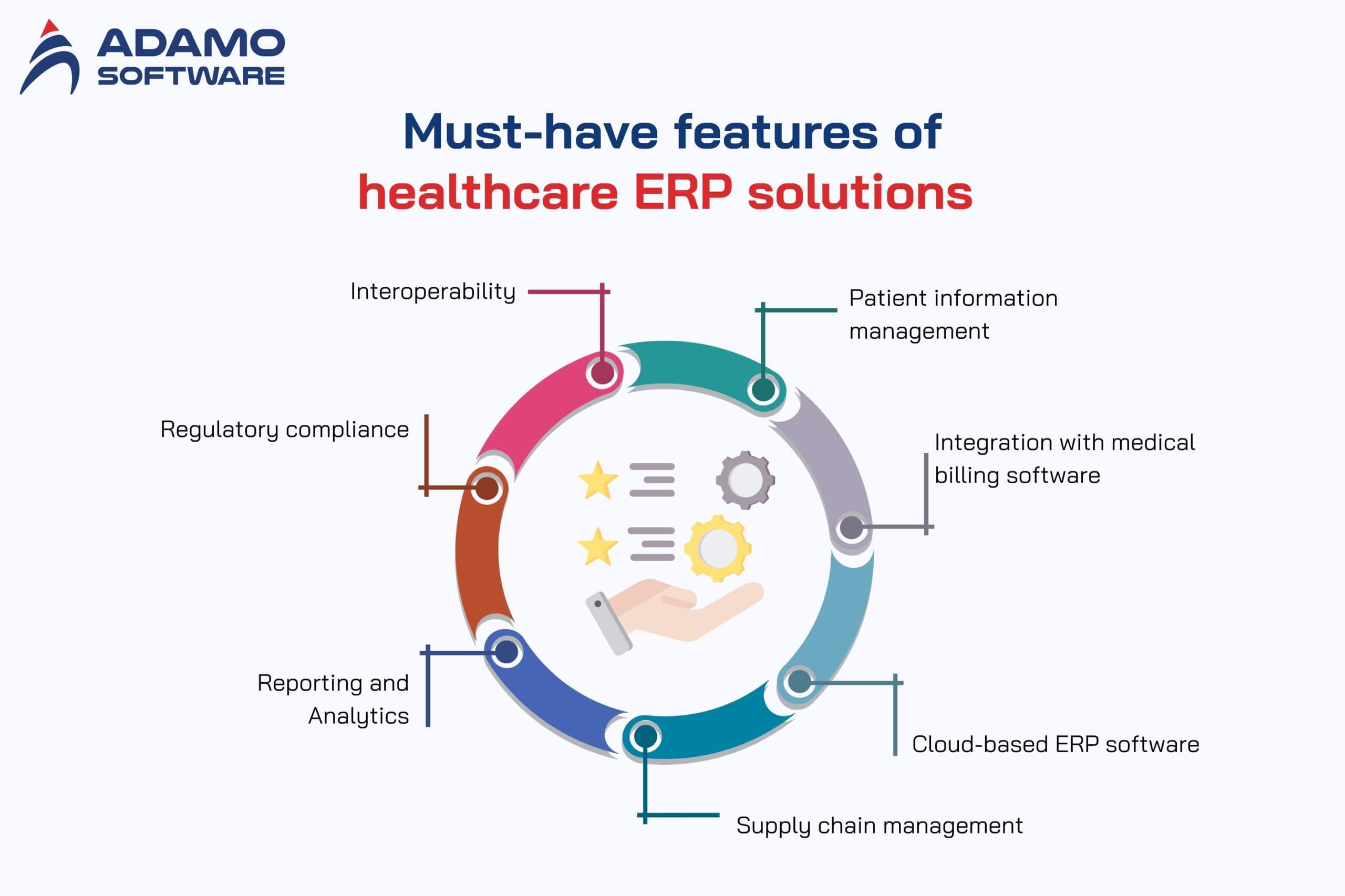
1. Patient information management
Taking care of patient information isn’t just a task — it’s something every healthcare provider needs to get right to build trust and deliver better care. Therefore, a robust healthcare ERP solution must include comprehensive patient information management features that enable efficient patient data collection, storage, and retrieval. Patient data includes demographic information, medical history, treatment plans, and test results. Accessing patient information quickly and accurately allows healthcare professionals to make well-informed choices and offer care tailored to everyone.
2. Integration with medical billing software
For healthcare organizations, effective financial management is essential in managing patient information. Integrating with medical billing software allows you to perform seamless billing processes, including patient billing, insurance claims processing, and payment management. A healthcare ERP solution must integrate seamlessly with this billing software to ensure accurate and timely financial transactions, reduce errors, and improve revenue management.
3. Cloud-based ERP software
More and more healthcare providers are turning to cloud-based ERP systems to simplify operations, cut costs, and improve patient care. Cloud-based solutions’ scalability, flexibility, and cost-effectiveness make them an ideal choice for hospitals. With cloud-based healthcare ERP systems, providers can safely access patient records and manage operations anytime, from anywhere. It eliminates the need for on-premises infrastructure, reduces maintenance costs, and ensures data security and compliance.
4,. Supply chain management
Another important feature that a Healthcare EHR Solution should have is supply chain management. This is crucial for hospitals to ensure the availability of medical supplies, control costs, and streamline the procurement process. A robust healthcare ERP system brings everything together — from tracking inventory and forecasting demand to managing suppliers and keeping tabs on every order. These features allow hospitals and healthcare organizations to optimize their supply chain. This helps reduce stock outs, minimize waste, and ensure the timely availability of critical resources.
5. Reporting and analytics
A key driver of success in healthcare is data-driven decision-making. To truly support healthcare operations, an ERP system needs to offer strong reporting tools and real-time analytics for better decision-making. This allows hospitals to track performance, identify trends, and gain insights into key metrics.
Advanced reporting features, customizable dashboards, and real-time analytics enable healthcare organizations to track patient outcomes, resource utilization, financial metrics, and operational efficiency. This also empowers decision-makers to make informed choices and drives continuous improvement.
6. Regulatory compliance
Compliance with healthcare regulations is paramount for all hospitals and healthcare organizations. Your healthcare ERP solutions must provide features that ensure compliance with relevant regulations and standards. These include data privacy controls, security measures, audit trails, and compliance reporting. By including these essential features, healthcare providers can keep patient data safe, accurate, and always accessible. It also helps you stay compliant and avoid costly fines or legal issues.
7. Interoperability
The final essential feature is to provide interoperability. This is an important feature in healthcare ERP solutions because it facilitates seamless data exchange and communication between healthcare systems and stakeholders. Additionally, interoperable ERP solutions allow for the secure sharing of patient information, test results, and medical records between different departments, laboratories, and healthcare providers. This improves care coordination, reduces redundancy, and increases patient safety and satisfaction.
In short, these must-have features can significantly streamline hospital operations. Improve patient care and promote efficiency and cost-effectiveness. Hospitals can enhance their capacity, optimize resource utilization, and deliver exceptional healthcare services to their patients by implementing the right healthcare ERP solutions.
You can explore more about Hospital Management Systems: Types, Key Features & Must-Know Insights here.
II. Healthcare ERP implementation process
Did you know that the success and failure of healthcare ERP solutions depends on the implementation process? Implementing it correctly can help you improve your business operations and reach new heights.
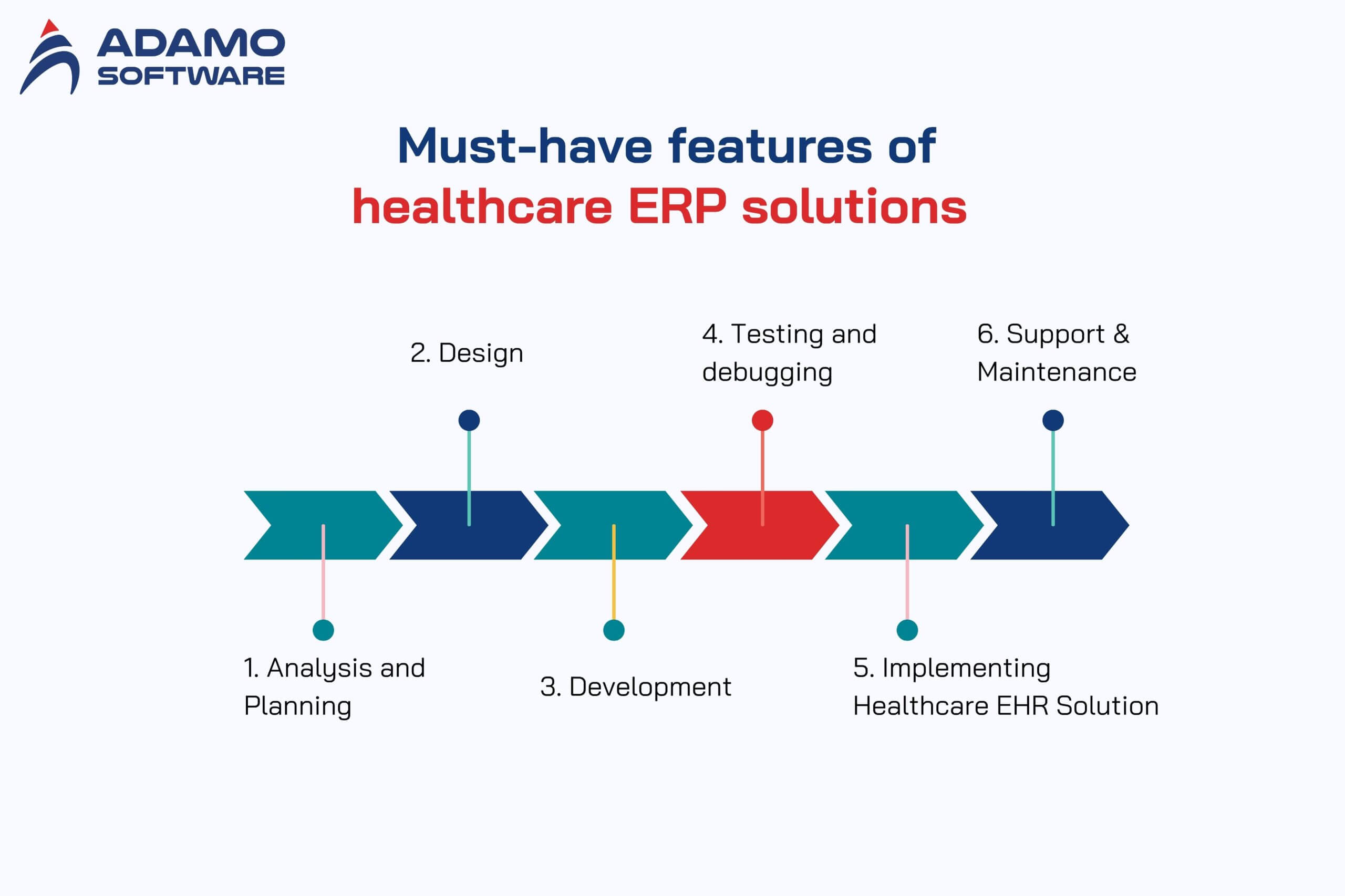
1. Analysis and Planning
Before embarking on an ERP system implementation, you need to do a thorough analysis and planning, which includes assessing your current systems to identify areas for improvement. Key stakeholders will collaborate to outline the project scope, set goals, and establish a timeline.
During this phase, your organization must also choose the ERP software that fits your business needs. Next, you outline the necessary functionality for the new system. This basic step is important because it will set the direction for the next stages of your healthcare ERP solutions implementation process.
2. Design
In this design phase, you develop ERP workflows that align with the ERP system. This includes performing an analysis to identify gaps between current operations and desired outcomes. Here, your design team must also engage with stakeholders to ensure that the design effectively meets business requirements.
3. Development
The engineering and development teams begin configuring and customizing the ERP software based on the design specifications discussed earlier. The tasks include integrating the ERP system with existing applications and ensuring compatibility with current hardware.
In addition, your custom mobile app developers should also focus on linking the software to the organization’s workflows. This helps improve efficiency and develop user documentation to facilitate a smooth employee onboarding process.
4. Testing and debugging
Testing is an important step in the development of any software system. This phase ensures that your healthcare ERP solutions work as required. Your software will be tested to ensure the CRM software meets business requirements. During testing, if any errors are found, they will be recorded and resolved before moving to deployment.
In addition, testing not only verifies the software’s readiness for use, but also helps refine processes based on user feedback. This step ensures a smoother transition during the go-live phase.
5. Implementing a Healthcare EHR Solution
After the testing and debugging phase, your EHR solution will begin to be deployed. The software will be marked as transitioning from development and testing to full operational use during this phase. Healthcare organizations must decide on the deployment strategy. You will ask yourself whether to deploy everything at once or gradually deploy the system components.
Training sessions are also conducted for end users. This helps your business familiarize users with the processes and functions of the software. However, a successful Healthcare ERP implementation requires close coordination between all stakeholders to minimize disruption to daily operations.
6. Support and Maintenance
The final step that you cannot ignore is maintenance. Ongoing support and maintenance are essential to ensure that your healthcare ERP solutions is always working properly. This includes monitoring system performance, addressing user concerns, and implementing necessary updates or enhancements. Additionally, receiving regular feedback from users helps you identify areas for improvement and potential adjustments to workflows.
You should establish a support team dedicated to resolving issues promptly and maintaining the integrity of your ERP system. In particular, you should also implement ongoing training programs to inform users about new features and best practices, promoting a culture of adaptation within the organization.
III. Costs of Custom healthcare ERP software development
The cost of developing a custom healthcare ERP solution isn’t one-size-fits-all. It depends on the features you need and the complexity of your operations. In most cases, healthcare ERP implementation can cost anywhere from $10,000 to $100,000, depending on your organization’s size and specific requirements. If you want to develop simple applications, the cost of developing ERP and CRM software will be lower than developing complex custom ERP software.
Additionally, ERP development costs may vary based on the provider’s expertise and proven experience in delivering healthcare solutions. So, if you want to know the exact cost of CRM and ERP software, you can contact or consult with a custom ERP development company.
Ready to Outsource?
Discover how we can transform your business with expert IT solutions.
IV. Advantages of custom-built healthcare ERP system to consider
Why should you implement healthcare ERP solutions? Let’s explore how implementing ERP software can benefit the healthcare industry. This includes health technology companies and care providers of all sizes and specialties:
| Streamlined operations | Synchronize across the organization such as administrative and clinical records, departments and warehouses. |
| New technical capabilities | Offer advanced automation and seamless integration solutions to streamline healthcare operations. This includes automated administrative notifications and connectivity to medical devices. |
| Customization and data insights | Tailored warehouse reporting and unified data analytics designed specifically for hospitals and medical centers. |
| Business strategy and augmented decision-making | AI-powered solutions: Business intelligence, educated predictions, healthcare business planning, etc. |
1. Advanced Medical Inventory & Supply Management: Healthcare ERP Capabilities
- Healthcare ERP solutions help track and record real-time inventory levels for medical supplies, equipment, and pharmaceuticals.
- Create an audit trail by tracking a series of electronic signatures and approvals to workflows as required by your organization’s protocols.
- Provide granular functionality that allows managers to zoom in on documents, reports, and insights about relevant inventory data.
- Smart notifications and alerts to administrative staff to maintain optimal inventory levels help prevent stock outs and reduce waste.
- Automatic reordering and smart supplier profiling: Healthcare ERP solutions help you automatically create purchase orders when inventory levels fall below certain thresholds. They also send them to the best suppliers based on specific information, prices, and delivery schedules.
2. Healthcare ERP: Enhanced Financial and Technical Performance
- Improved Equipment Maintenance: An ERP system helps medical teams track maintenance schedules, monitor repair history, and support IoMT device integration. This allows healthcare organizations to extend medical equipment’s life, keep accurate records of maintenance activities and costs, and prevent costly equipment downtime.
- Healthcare ERP systems help managers keep close track of expiration dates and key details for medications and medical supplies—ensuring safety and reducing waste. This helps healthcare organizations such as hospitals prevent the use of expired or substandard products, promoting patient safety.
- Gain better cost control and cut down overhead: ERP systems enable healthcare providers to manage expenses across staffing, medical supplies, equipment, and medications more efficiently
- This allows healthcare organizations to analyze and model spending and identify targets to optimize costs and improve profitability.
- New financial management capabilities: Thanks to ERP software features, healthcare business managers can monitor complex financial flows, including multiple payment options and medical billing integrated with patient portals and other solutions to maintain financial sustainability.
V. Implement an advanced Healthcare ERP solution with Adamo
Now, you have a complete picture of healthcare ERP solutions and the full implementation process. But the question is, how can it be developed successfully? Modern healthcare providers need a smart, efficient ERP solution that saves time and money—so they can focus on what matters most: patient care. And hiring experienced professionals to build the right solution will make the process seamless and efficient.

So, partnering with a reputable ERP system development service provider is a perfect solution, and the experts at Adamo Software are always ready to help you. With extensive experience in the software development industry, we understand the technology and trends as per the needs. Our healthcare software development team can help you develop comprehensive, customized ERP solutions. Additionally, we are technology-focused, healthcare regulatory compliant, and have proven expertise in delivering personalized healthcare solutions.
Contact us today for free to learn more about our healthcare ERP solutions development services.



